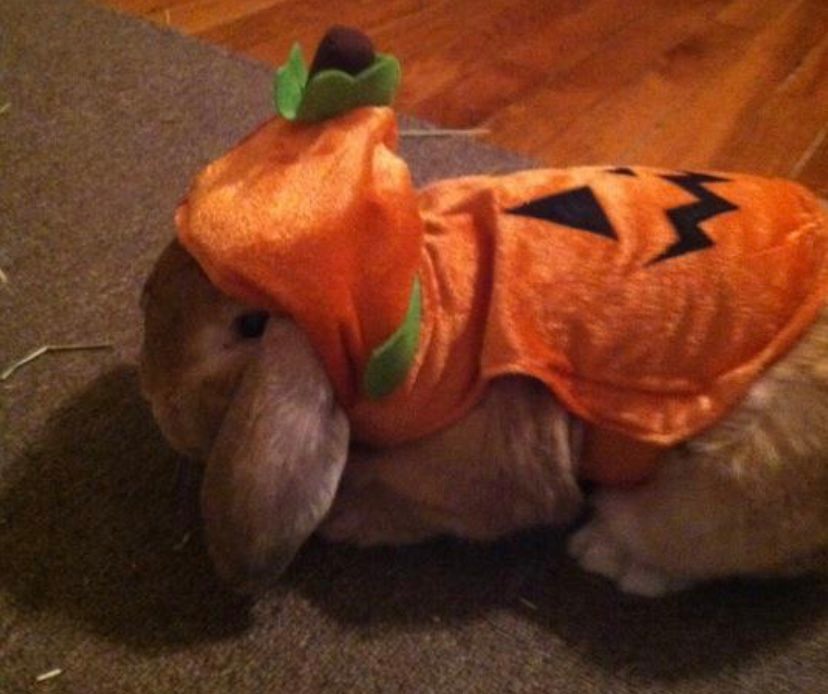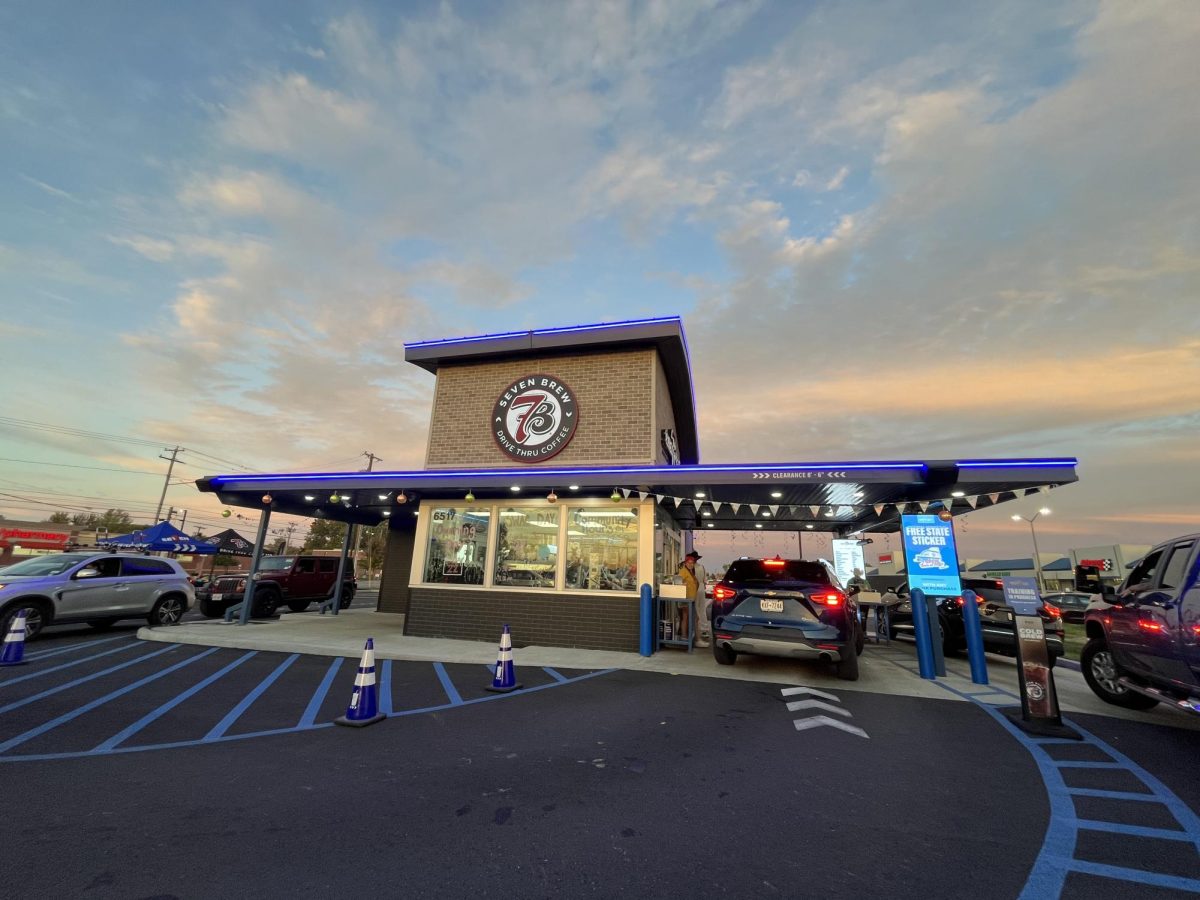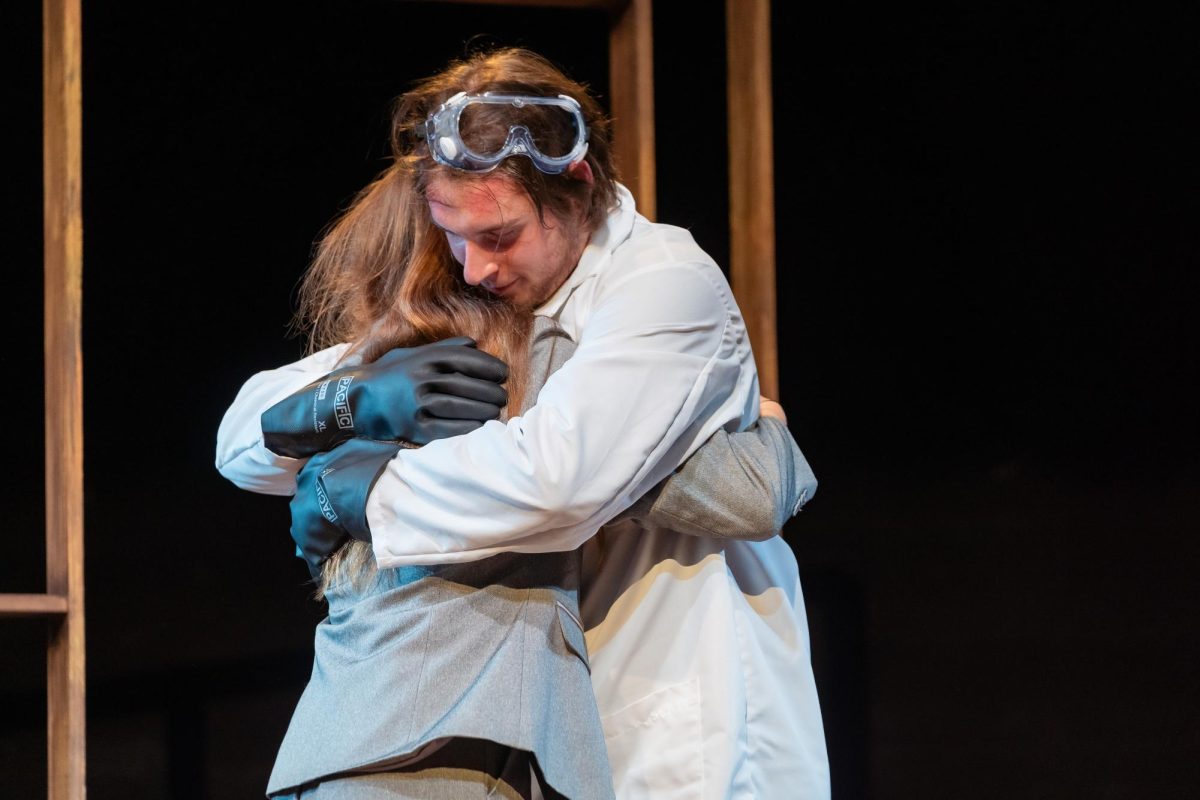When Kristin LaBar first saw two-year-old Tater Tot in a cage at the SPCA, she fell in love. She fell in love with his big feet, his button nose and his floppy ears.
“He was my bud, my best friend, I just loved him so much,” said LaBar.

After adopting him, LaBar like many others realized how much work it really was to take care of a rabbit. But she stayed with it and continued to learn more and more about the responsibility of owning a rabbit as the years went on. But then there are others who realize they aren’t up for the task after they already brought one home.
“Rabbits have this stereotype that they are easy to care for because they are a small animal. But the truth is that rabbits are actually very delicate animals and they actually require a lot of things like behavior enrichment and time out of the pen, they’re not an animal like a mouse that really just enjoys their time in the cage,” said director of communications for Lollypop Farm Ashley Zeh.
Wanting to continue to socialize and enrich her bunny, LaBar took Tater Tot everywhere she could.
LaBar is a teacher and one of her first jobs was pushing into different classes. She used to bring Tater Tot into her classroom to hop around outside of his cage at the school and to be around the children. She says he turned into a classroom pet for a little while.
“They’re [bunnies] fragile. When I had him I was mostly in third and fourth grade, but I wouldn’t let a young child play with him because their bone structures are very frail so they can break things. Mine [Tater Tot] actually broke his leg trying to get out of his cage and he had to have surgery,” said LaBar.

Zeh says a bunny is not like a hamster or a guinea pig, it needs more of an interaction from its owners than that. The owners need to be responsible and treat the bunny as they would a cat or a dog. Their natural instincts tell them that any sudden movement is a predator, so their owners have to be careful of how they interact towards the animal.
“They do become a little bit more than some families are ready for. We really see that [surrendering a bunny] with small children because rabbits tend to do things like when they’re grabbed really quickly they tend to flail or flip out and they can hurt themselves and this comes from natural instincts from rabbits out in the wild,” said Zeh.
The Lollypop Farm is a humane society based out of Fairport. According to their mission, they want to better the lives of all animals “through justice, prevention, and life-saving care.” And they have put in multiple measures to make sure their rabbits go to the right homes and prepare the new owners of what to expect.

“Our adoptions counselors also do a really great job of coaching people on what the pet’s life is going to be like when it goes so we don’t see a lot of returns,” said Zeh.
Lollypop Farm has a handful of bunnies ready for adoption, and some still receiving care until they are ready to be seen by the public.
In the rabbit’s paperwork on the glass of their spacious cage, it says why they were surrendered to Lollypop Farm or if they were found and taken in by the facility, and a little bit of what they’re like.
If you walk into Lollypop Farm you see a main room where off of that, you have different doors that lead you to the dogs, cats, turtles and rabbits available for adoption. But beyond this from room, is the rest of the large facility that holds the animals that are not quite ready for adoption.
One bunny that is recovering there is Bananas and she was found on the road. She had a large abscess on her eye, one that was big enough that they couldn’t just remove the abscess, the vet needed to remove her eye as well. And other one, Tilley, was being treated for arthritis.

Bananas is recovering well and both her and Tilley will be available for adoption as soon as they are healed.
“We have seen rabbits go home to families and it be wonderful family pets, as long as they are treated as the individual that they are,” said Zeh
LaBar gave Tater Tot the best 10 years of his life.
“I got him when I was 24 and he died when I was 34. I never thought I would be 34 with a bunny,” said LaBar.
Bunnies are so much more than their cute faces and fuzzy tails. They come with a lot of responsibility that many fail to realize. They are a 10 to 15 year commitment that a lot of people aren’t ready for. Once you take a bunny home they should be in your care forever, not just until you decide you don’t want to deal with them anymore because they are “too much work”.

























